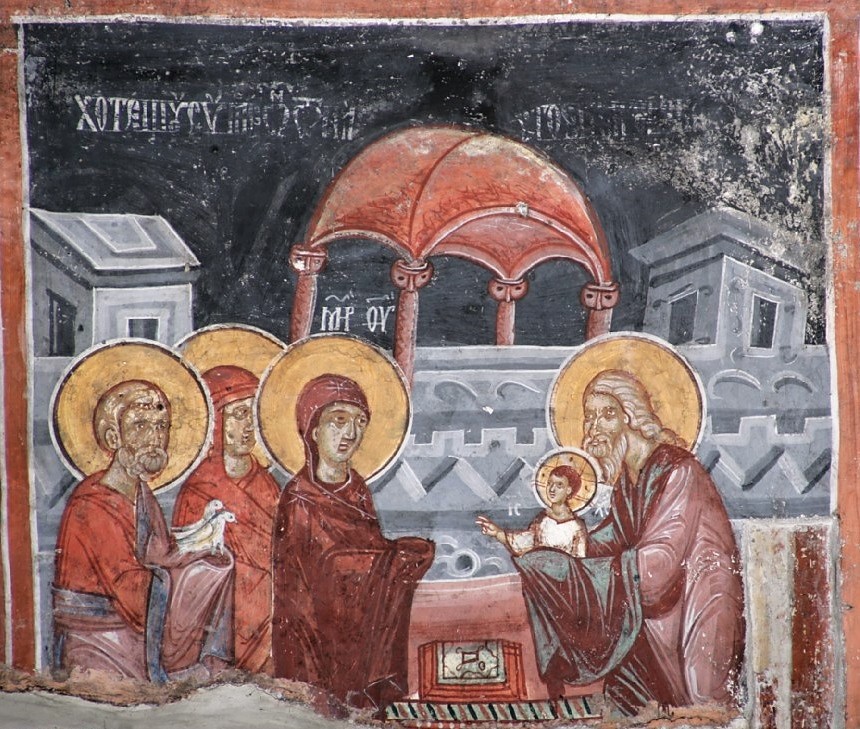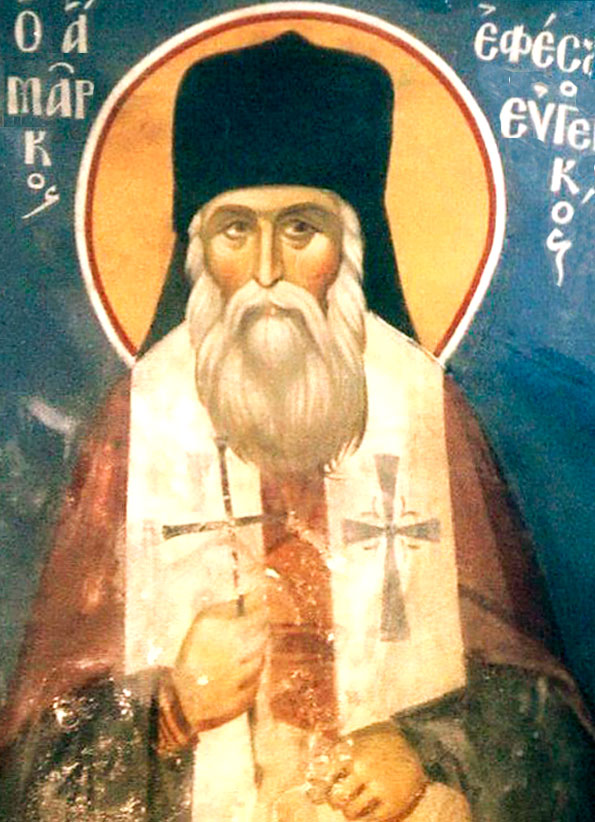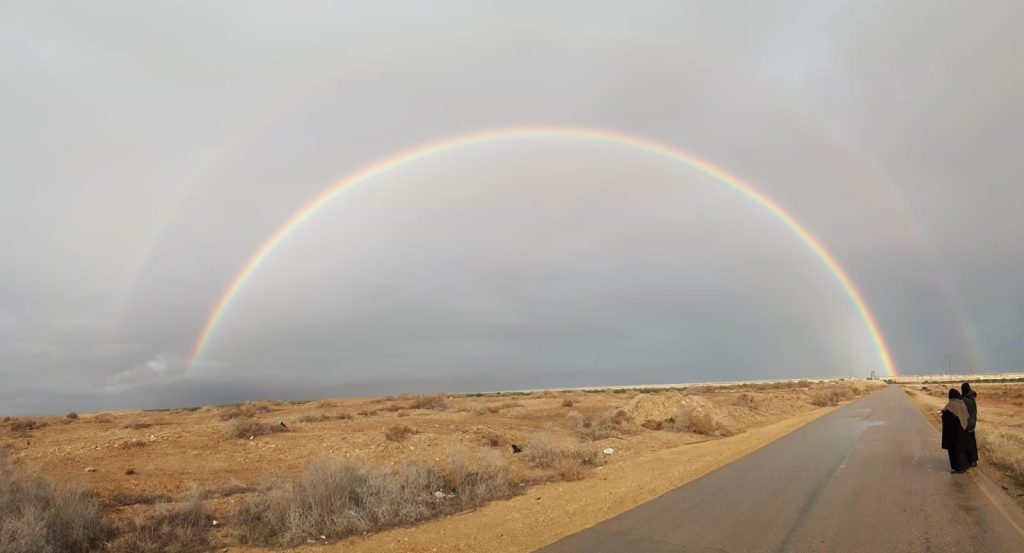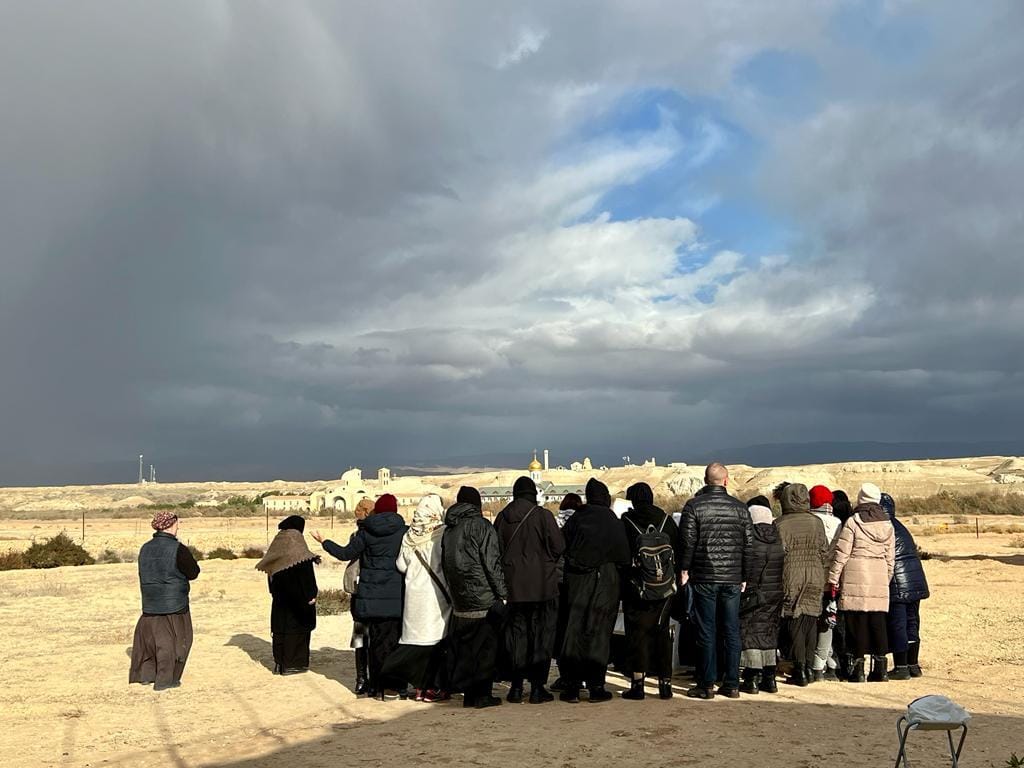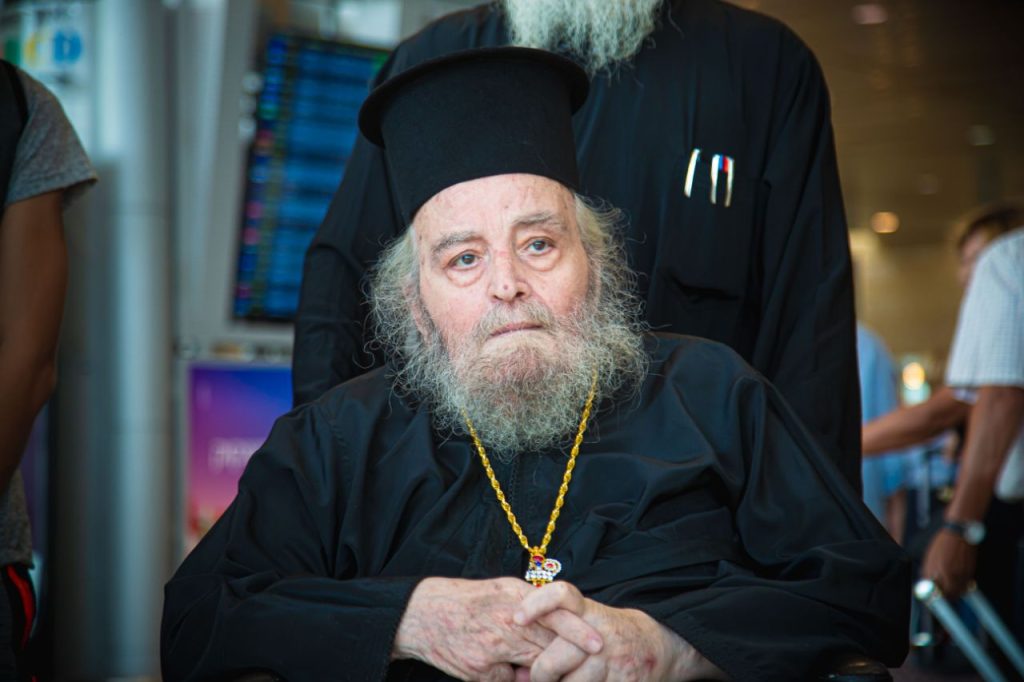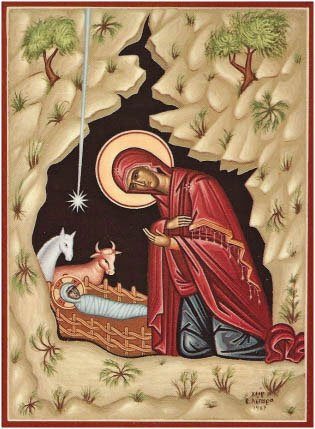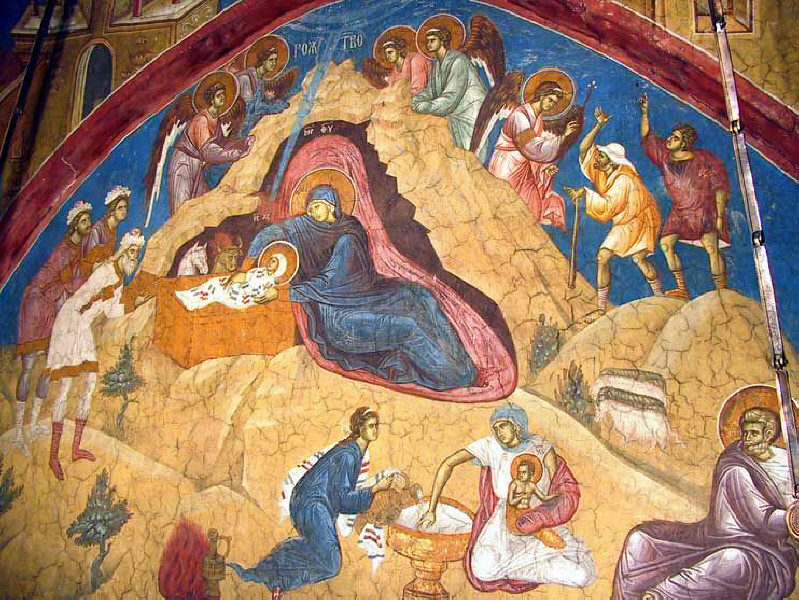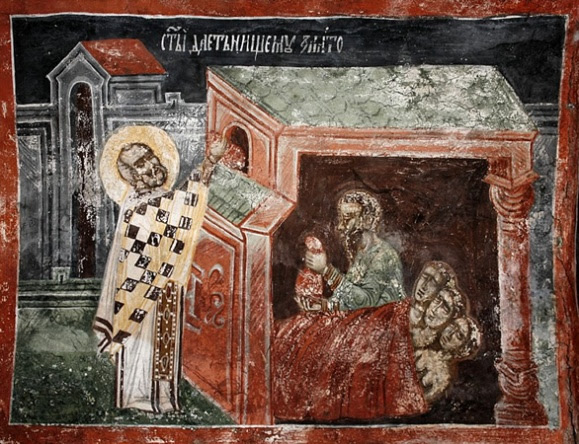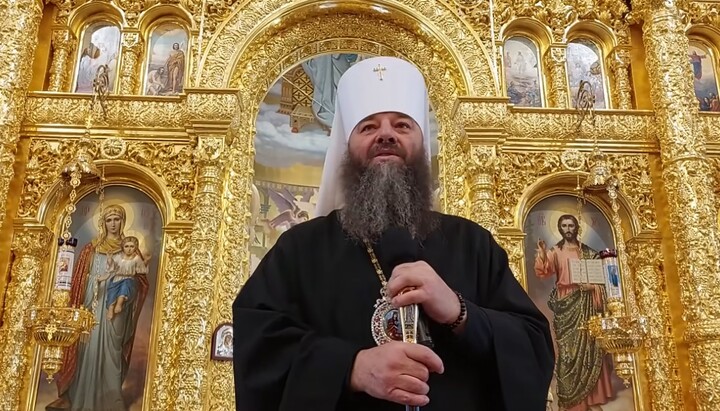Speaking about the spread and celebration of Christmas, St. John Chrysostom says: “Magnificent and noble trees when planted in the ground shortly attain great heights and become heavily laden with fruit; so it is with this day.” So it is with the day of the Meeting of our Lord in the Temple. In the beginning this day was discussed among Christians but the solemn celebration began from the period of the great Emperor Justinian. During the reign of this emperor, a great pestilence afflicted the people in Constantinople and vicinity so that about five-thousand or more people died daily. At the same time a terrible earthquake occurred in Antioch. Seeing the weakness of man’s ability to prevent these misfortunes the emperor, in consultation with the patriarch, ordered a period of fast and prayer throughout the entire empire. And, on the day of the Meeting [The Presentation] itself, arranged great processions throughout the towns and villages that the Lord might show compassion on His people. And truly, the Lord did show compassion; for the epidemic and earthquake ceased at once. This occurred in the year 544 A.D. Following this and from that time one, the Feast of the Presentation [Meeting] began to be celebrated as a major feast of the Lord. The tree, in time, grew and began to bring forth-abundant fruit.
Prologue of Ohrid, 2 February


